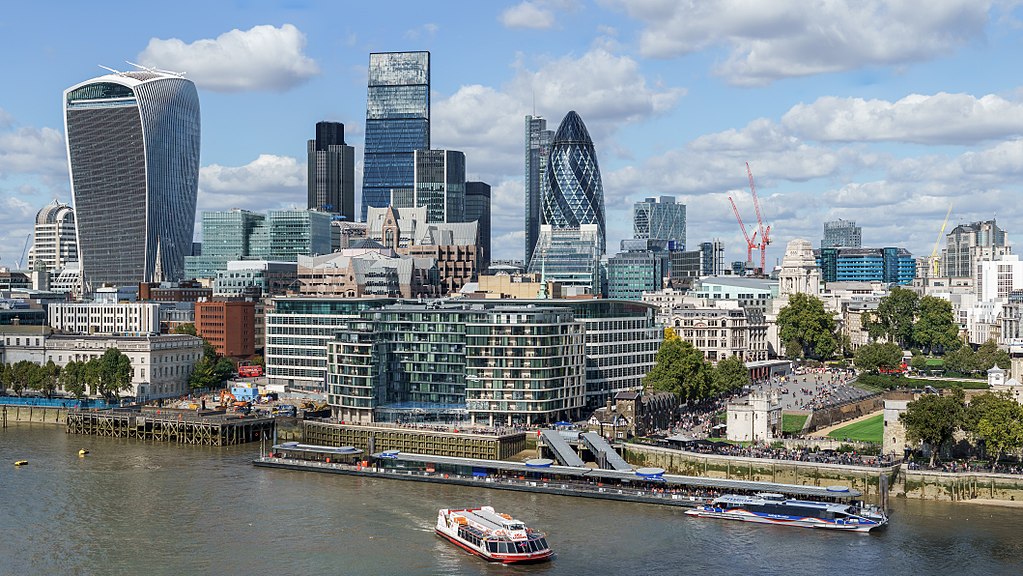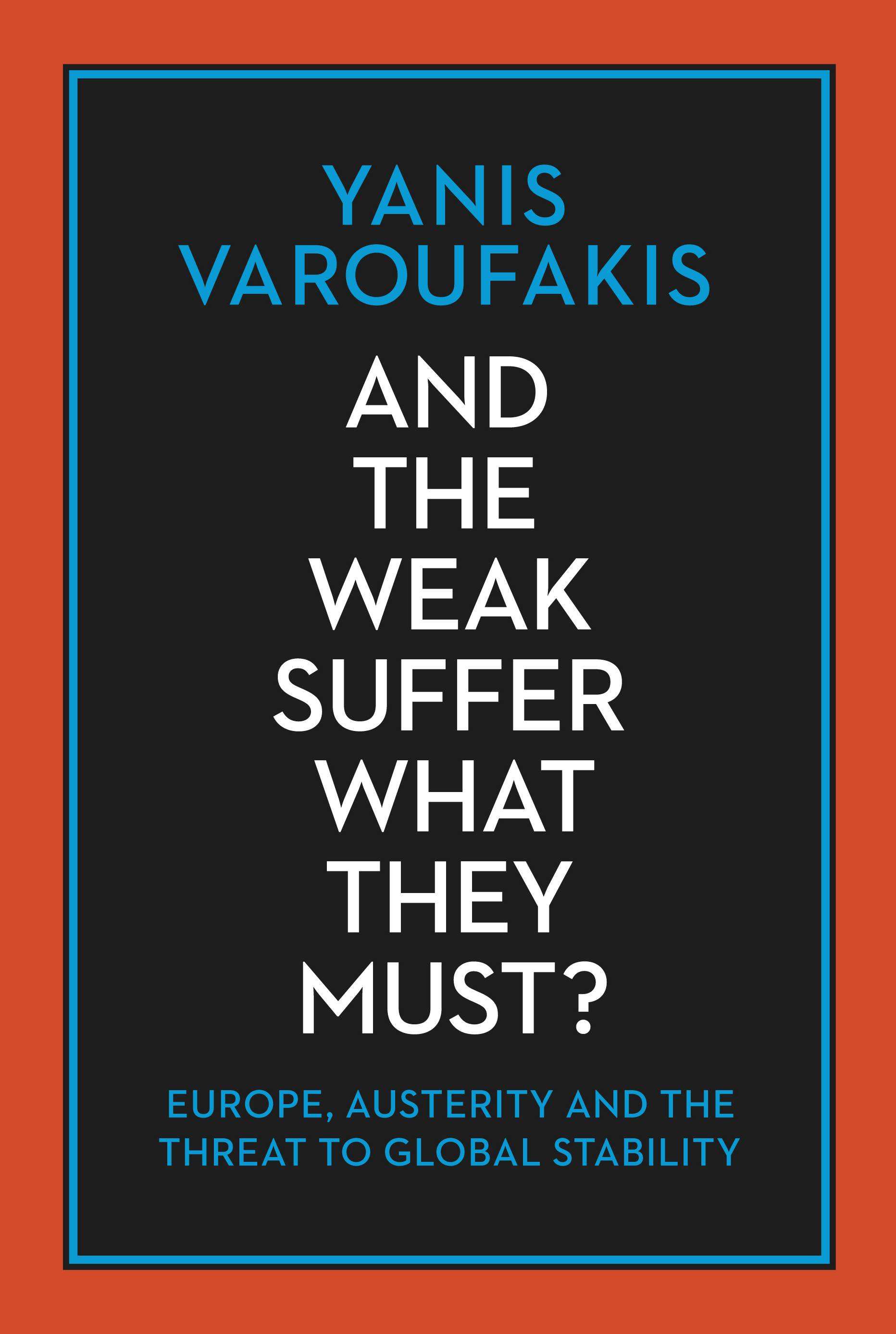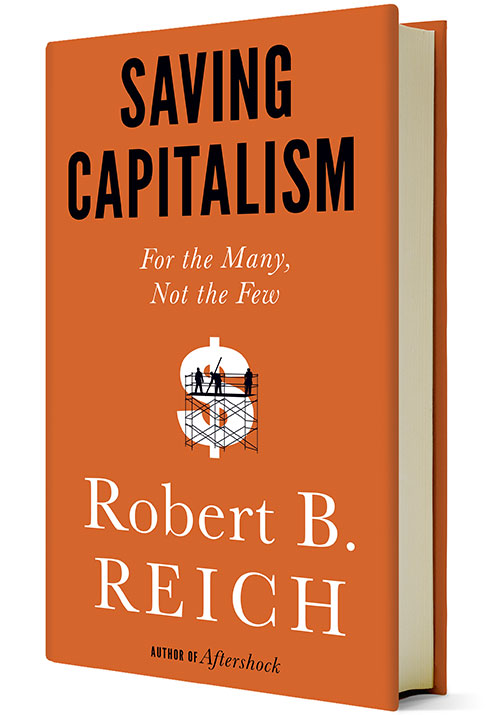
A great title from Grant Thornton.
Several hundred people came together to celebrate the vibrancy of London and its economy and to look to the future. The CEO of Grant Thornton, Sacha Romanovitch, introduced the occasion reminding us of the central place the London occupies in the world economy, yet also the challenge of achieving an economic settlement that is inclusive, fair and rewarding for all. In doing so we face challenges of how we grow the economy, how we work in the future and, of course, the challenges we face in living in capital city.
There was a fascinating array of speakers, the proceedings masterfully overseen by Sir Trevor McDonald, from founders of business mentoring networks and advisers to government to key players in the housing sector and even a poet.
The essential celebration was of the diverse talent of London’s people and how that can be put to good business purpose and good social purpose.
Grant Thornton had conducted their own research on the opportunities and challenges of living and working in London and were clear that London’s economy needed to be profitable but that did not mean it should not be purposeful.
Certainly with the generational changes that we have seen and, indeed, in the light of the financial crisis and corporate scandals, it is now axiomatic that business must be purposeful. That does not mean – in the old language of Corporate Social Responsibility – that a company simply sets up a foundation and makes grants to worthwhile charitable causes – though that may still be part of the picture. Rather, it is a point about the fundamental purpose of a company, its aims, methods of operation, sustainability, relationships to employees, community and society. None of that means that profits cannot and should not be made. Even large profits. Even more so, it is a move in the direction of, perhaps, Corporate Social Innovation – how profitable companies purposefully align themselves with social objectives. That might mean thinking about more flexible working arrangements for employees as much as grand statements about social justice. The aim is healthy, purposeful and meaningful companies.
Vibrant Capital sought to think about some of these things with the ideas of live, work, grow. I appreciated this combination; recognising that a vibrant economy will be a growing economy, one that encourages innovation and creativity. Similarly, this leads to questions about the nature of work and how we live. Unsurprisingly, the question of housing arose again and again in the discussions. I will return to that point subsequently.
Three things that I learnt either from speakers, or others, or in discussion and from my own observations:
And here is the complexity. Scale-up requires capital. London is the leading capital market in the world, with New York. Yet access to capital for many companies remains difficult. The future shape of the economy requires a trusted and purposeful financial sector, the ability of firms to access capital, the building of real and indeed local relationships between the providers of capital and SMEs.
The industrial revolution harnessed massive resources of capital, labour, land…..and entrepreneurship. We have always been an innovative, creative nation, attracting real talent and expertise, both home grown and providing opportunities for those from elsewhere. Let’s celebrate this entrepreneurial talent. We have always been a trading nation but we need to do everything possible to mentor and help companies into new markets. There may be a new industrial revolution coming, new patters of work, new ways of doing business – such change will always bring challenges as it did 200 years ago, but we have an opportunity to think about and shape the nature of that economy.
I do not think that it is the responsibility of business to solve the housing crisis in London. However, first, business has a fundamental interest in solutions being found to that problem and, second, business talent applied to social need can produce innovative solutions. One speaker said in relation to housing that we need to be willing to try things that fail. More widely the point is how we have come to compartmentalise society – business, family, politics, arts – everything in its own self-contained box or silo. If we really are to seek some solutions to our societal needs, then these silos need to be broken down.
Three challenges.
At CEME we think about these things all the time, seeking to encourage the intellectual and practical debate about how we build a vibrant, enterprising economy, one in which creativity and innovation is rewarded and celebrated, but one also in which all have opportunities and all can flourish. We have events later in the year on Work and also The Future of Capitalism.
Watch this space for the continuing debate.
For now, though, thank you to Grant Thornton.
 Dr Richard Turnbull is the Director of the Centre for Enterprise, Markets & Ethics (CEME). For more information about Richard please click here.
Dr Richard Turnbull is the Director of the Centre for Enterprise, Markets & Ethics (CEME). For more information about Richard please click here.

The Centre for Enterprise, Markets and Ethics (CEME) is delighted to announce the publication of Making Capitalism Work for Everyone – Vol. 1 & 2, edited by Richard Turnbull and Tim Weinhold.
Volume 1 can be downloaded here and Volume 2 here. Alternatively, you can order paperback copies via contacting CEME’s offices at: office@theceme.org

In this book, Yanis Varoufakis (Professor of Economics at the University of Athens) gives a highly informative and very well-informed account of the austerity measures enforced by the institutions of the European Union (EU) since the financial crisis which began in 2007-2008. He also sets these events and policies in the wider context and history of the EU, and especially of the economic relationship between the EU and the USA. As the title shows, Professor Varoufakis is deeply concerned about the impact of these policy measures on the people who are weakest in a society: most plainly, the weak in Greece (his own country), but also in other EU countries. This is a concern which Christians must of course share, given the many biblical injunctions to uphold the cause of the poor and needy.
Varoufakis’ account is especially well-informed because of his (short-lived) role as Greece’s Finance Minister between January and July 2015: he was directly involved in many lengthy meetings between the Greek government and the major EU bodies. These negotiations were focused on the debt crisis which hit the Eurozone in 2010 (a direct consequence of the 2007-8 crisis in London and Wall Street), and in which the desperate finances of the Greek banks were a central part. Prof Varoufakis was already well underway with writing this book when he chose to stand for election in Greece – motivated by precisely the concerns and arguments about which he was already writing.
More than half of the book is taken up with an account of the economic relationship between the USA and the EU and its predecessors: the European Coal and Steel Community, which evolved into the European Economic Community [Common Market]. The key aspects here centre on macroeconomic policy and the nature of global capitalism: and these are, as Varoufakis shows, central to the contemporary challenges for policymakers, for capitalism and indeed for democracy.
This material (chapters 1 to 5) often takes a fair amount of wading through (although it is thoroughly researched). But the case he presents is a strong one. In his own words (pp137-8): ‘The reason Europe seemed to be prospering in the late 1990s and until 2008, despite having introduced an unsustainable gold standard [i.e. permanent monetary union in the form of the Euro], had little if anything to do with the design of its single currency and everything to do with the fact that there was no need for political surplus recycling [emphasis added], as the world of private finance was doing plenty of fair-weather recycling’. What Varoufakis means here by ‘recycling’ is nothing to do households with putting plastics and paper into bins of various colours (!). Instead he is talking about macroeconomic and monetary flows between and within countries. In essence, during the 1950s and 1960s, the ‘Bretton Woods’ economic institutions helped to ensure that no developed economy slumped into permanent recession or depression; and, even after the collapse of those arrangements in 1971, the large and growing ‘twin deficits’ of the USA (i.e. both a Balance of Payments current account deficit, with imports exceeding exports, and a public sector deficit, with government expenditure exceeding tax receipts) helped to enable economic growth to continue in the EU and the Eurozone. There was no need for the countervailing current account surplus in countries such as Germany to be recycled by the hand of politicians, since the macroeconomic ‘weather’ continued to be fair – until 2008. However, the 2007-8 crisis brought all of this crashing down; and the poor design of the Euro, Varoufakis argues, meant that the Eurozone countries had no defence against the ensuing crisis.
Varoufakis also makes a strong argument for what is many ways is a very depressing proposition. The argument is that – in the light of the above history – the EU’s political, economic and monetary institutions do not have it in their DNA to provide a suitably flexible response to a crisis such as that of 2007-8 and its aftermath. In essence the EU’s structures centralize power (e.g. in the hands of ‘bureaucrats’) and are incapable of being made democratically accountable.
On that basis, in the remaining chapters Varoufakis proceeds to explain the interconnections between the post-2008 debts of private (commercial) banks, the perceived need to bail out these banks, and the EU’s requirement that governments must introduce austerity measures as the price for the EU agreeing to complex packages to try to resolve the severe difficulties. Crucially, argues Varoufakis, the ‘no bailouts of EU countries’ rule was at the heart of why the follies of bankers led to the price being paid by the weakest citizens (in the form of austerity measures), most especially in Greece. ‘A clueless political elite, in denial of the nature and history of a crisis whose roots go back to at least 1971, is pursuing policies akin to carpet-bombing the economies of proud European nations in order to save them’ (p192).
Varoufakis makes no secret of his left-wing convictions, and his atheism is also evident. He writes with passion and intelligence about some very serious challenges facing European and global capitalism, and the book is well worth reading.
Let me conclude with some questions that are raised by this book, especially from a Christian perspective. First, are we sufficiently concerned for how macroeconomic and political forces impact on the weakest in our societies? The title of the book, as Varoufakis explains on p19, is drawn from Thucydides’ Peloponnesian War: at one point the powerful Athenian generals explained to the helpless Melians that ‘the strong actually do what they can and the weak suffer what they must’ [translation by Varoufakis]. Substitute ‘politicians and bankers’ in place of ‘the strong’, and it is hard not to find this very chilling.
Secondly, what is the future for the EU? This is evidently a question not only for the UK (whatever one’s views about Brexit). Varoufakis is an internationalist, and sees nationalism as a great problem; yet he is deeply pessimistic about the EU.
Thirdly, how can global capitalism be better managed, so that the power of money and finance (we might even say ‘Mammon’) is circumscribed and a more truly democratic political economy is shaped?
“And the Weak Suffer What They Must? Europe, Austerity and the Threat to Global Stability” was published in 2016 by Nation Books (ISBN – 10: 1568585047), 368pp.
 Revd Dr Andy Hartropp is an economist, theologian and church minister. He has two PhDs, one in Economics and one in Christian Ethics. He lectured in financial economics for 5 years at Brunel University, west London. He also worked for a year with the Jubilee Centre in Cambridge, primarily leading a team doing research on families in debt. He trained at Oak Hill College, London, for ordained ministry in the Church of England. His (second) PhD was published as: What is Economic Justice? Biblical and secular perspectives contrasted (Carlisle: Paternoster, 2007). He has spent 13 years in parish ministry. He worked for eight years with the Oxford Centre for Mission Studies, where he was the Sundo Kim Research Tutor in Mission and Economics. In March 2016 he joined Waverley Abbey College as Director of Higher Education. He chairs the Ethics and Social Theology Group of the Tyndale Fellowship. He is married to Claire, and they live in Bicester, near Oxford.
Revd Dr Andy Hartropp is an economist, theologian and church minister. He has two PhDs, one in Economics and one in Christian Ethics. He lectured in financial economics for 5 years at Brunel University, west London. He also worked for a year with the Jubilee Centre in Cambridge, primarily leading a team doing research on families in debt. He trained at Oak Hill College, London, for ordained ministry in the Church of England. His (second) PhD was published as: What is Economic Justice? Biblical and secular perspectives contrasted (Carlisle: Paternoster, 2007). He has spent 13 years in parish ministry. He worked for eight years with the Oxford Centre for Mission Studies, where he was the Sundo Kim Research Tutor in Mission and Economics. In March 2016 he joined Waverley Abbey College as Director of Higher Education. He chairs the Ethics and Social Theology Group of the Tyndale Fellowship. He is married to Claire, and they live in Bicester, near Oxford.

Saving Capitalism – For the Many not the Few is the latest addition to Robert Reich’s cohort of publications. He is perhaps best known for his previous work, The Work of Nations (1992) which raised the issue of growing inequality to the public sphere. Alongside his writing, Robert Reich is also a Professor at the University of California, Berkeley, and has served in various positions under the administrations of Gerald Ford and Jimmy Carter. Most notably, he was US Secretary of Labour under the Presidency of Bill Clinton between 1993 – 1997.
At the age of 71, Reich brings a lifetime of experience in both academia and politics to the table. As a true social-democrat, Reich’s Saving Capitalism is a continuation of the themes he discusses in previous publications – some of which include: rising inequality, the not so ‘free’ marketplace, the over-concentration of political and economic power in the hands of a few, the disenchantment of the masses, and others.
As the title may suggest, Saving Capitalism is a critique of the free market structures and modern-day capitalism. Reich argues that decision-making power is increasingly concentrated in the hands of a few, at the expense of the ‘many’. The very rich get richer and more powerful, while the middle and lower classes get weaker and poorer. The entire system is rigged against the majority in favour of a concentrated few. The solution to this injustice, Reich suggests, is an “…activist government that raises taxes on the wealthy, invests the proceeds in excellent schools and other means people need to get ahead, and redistributes wealth to the needy” (page xvii).
Does this narrative sound familiar? To many it certainly will. Robert Reich’s Saving Capitalism is therefore one among numerous publications that champion the social inequality-class warfare thesis. In that sense, the book brings little to nothing new to the debate. Nonetheless, it is well-written and its use of colloquial language grapples the reader. This does however make the book read like more of a socio-political novel rather than a macroeconomic or political account. One cannot help but feel that Reich’s desire to push his own personal narrative has come at the expense of rigorous analysis.
But before jumping to any conclusions, let’s briefly touch upon the structure and content.
Saving Capitalism is comprised of three main parts. The first chapter, entitled “The Free Market” aims to show how in fact ‘free markets’, are not ‘free’ (page 85).
As you may have already guessed, Reich argues that this is due to them being controlled by a select, powerful few that both establish and control rules in which a ‘free market’ operates. He argues that there are five ‘building blocks’ of a free market: property, monopoly, contracts, bankruptcy and enforcement. Each of these require human governance and can be used to either, promote a fair and decent society or can be manipulated to benefit a select few (page 9). This first part of the book argues that the latter has occurred. The stronghold on patent laws by pharmaceutical companies, the large lobby budgets of corporations to maintain dominant market positions, the abuse of bankruptcy laws, are all cited as evidence that the entire system is rigged in favour of on elite few.
The second part of the book is dedicated to showcasing the consequences of such a rigged system. Here Reich argues that free market meritocracy is in fact, a myth. Those at the top increase their own wages whilst those at the middle and bottom see their wages stagnant and in many cases, decline (pages 134-167).
In the third and final chapter, Reich argues for a restoration of countervailing power, or in layman’s terms, bringing power back to the people. The means by which he believes this can be achieved are certainly not new: an increase in the minimum wage, amending labour laws to favour unions, and changing contract laws as to encourage employees and workers to take action against unjust employers (pages 153 – 217).
So while Robert Reich’s latest work presents a compelling critique of the challenges facing 21st century capitalism, it brings little new to the table. Moreover, any truly impartial reader that has some basic understanding of economics would be quick to observe that Saving Capitalism is unabashedly lopsided. There is no doubt that western capitalism is at a crossroads, and the aftermath of the financial crisis has left millions feeling disenfranchised. However, Robert Reich portrays injustices within the free market (as real as they may be), as characteristic of the entire economy. It’s a bit like saying, we can’t play football anymore because one of the players faked an injury.
He also seems to portray an over-the-top form of class warfare: the elite vs. the rest. As if the classes are statutory and unitary groups with no movement or change between. The rich and powerful only stay rich and powerful while the rest suffer the consequences of their actions. We know this is simply not the case – a free market economy does indeed reward creativity and work. Whether, intentional or unintentional, Reich left out any deeper economic discussions, such as aggregate supply/demand and its impact on market meritocracy. This brings us to what is perhaps the most significant pitfall of the book, it is far to rooted in empirical storytelling rather than political or economic analysis. No matter how broad Robert Reich’s experience may be, personal examples should always be an addition to the argument and not its foundation.
Having said that, Saving Capitalism offers some captivating thoughts on the current state of free market. Provided that its rather superficial and politicised arguments are viewed through a critical lens, the book is certainly a worthwhile read.
“Saving Capitalism: For the Many, not the Few” was published in 2016 by Icon Books Ltd. (ISBN: 9781-78578-0677). 279pp.
 Andrei Rogobete is a Research Fellow with the Centre for Enterprise, Markets & Ethics. For more information about Andrei please click here.
Andrei Rogobete is a Research Fellow with the Centre for Enterprise, Markets & Ethics. For more information about Andrei please click here.

This book is a collection of previously published articles and one unpublished conference paper, with a new 46 page long introduction. It is therefore not a book that develops an argument skillfully and steadily, rather it hammers away at certain themes, sometimes repetitively. Streeck acknowledges this in his Note on the Text, where he admits to an ‘occasional overlap between chapters’ (p. ix). Having read through them all I did feel that at times this repetitiveness was unfortunate, although there is undoubted value in having the various articles gathered in one place.
The organizing theme taken by Streeck is that capitalism is collapsing because of certain internal contradictions. What is more, the author believes that we are living in a period of ‘deep indeterminacy’ (p. 12) in which it is difficult to predict what will happen, and that there is nothing obvious to replace our contemporary capitalist system. Other than at two brief moments, the prophetic message given is one of doom and gloom throughout the entire book, with no real sense of hopeful possibilities. In an emotional sense, and perhaps also because of its repetitive nature, I therefore found that reading this book left me dispirited, but also with a sense that the analysis might be incomplete or flawed.
One of the recurring strands running through the book is that of the relationship between economics and sociology. This is addressed through the lenses of economic history, the nature of money and debt, the difficult relationship between capitalism and democracy, commodification and inequality, and a consideration of the class structures within society (Marx certainly gets several mentions). This is summarized admirably concisely and clearly in the final paragraph of Chapter One, which bears the same title as the book itself, and which started life as a lecture given at the British Academy on 23rd January 2014.
At heart, although he never exactly states it in this way, Streeck presents a vision of capitalism as an epoch within history, whose time was always going to be limited, rather than accepting a view of history that must fit within a capitalistic meta-narrative. In order to sustain this argument, the author needs to describe capitalism in a certain, rather dysfunctional, way. So for example, Streeck sees innovation as something that ‘attacks and destroys in particular firms and markets that operate to everybody’s satisfaction.’ (p. 39) I was not convinced by this. It seemed to me that the author’s structuralist view of society had left little space for human creativity, and left him unable to see individuality as anything except a problem. However, prompted by Streeck’s analysis I did find myself asking about the nature of a wholesome vision of collective life within which individuals can flourish, and what kind of ‘progress’ this would mean.
The two moments, hinted at above, when Streeck himself ventures into the territory of suggestions or answers to these questions come at the end of Chapters Eight and Nine. Chapter Eight considers the troubled relationship between democracy and capitalism, taking the work of Wolfgang Merkel as a foil, but I was heartened to discover the suggestion of ‘de-globalizing capitalism’ (p. 198) and the idea that ‘restoring embedded democracy means re-embedding capitalism’ (p. 199) (italics in the original). For me, this idea offers the genesis of a new piece of work, different in tone to the current collection, and I would encourage Streeck to reflect on how this could be developed. Rather different, but equally important, is the moment at the end of Chapter Nine when Streeck feels for ‘…a non-capitalist politics capable of defining and enforcing general interests in the sustainability of human society’ (p. 225). I took this to be a call for the complex relationship between politics and economics to be re-imagined.
This brings me to another problem that I had with this book; it has in a sense been overtaken by the events of the Brexit referendum and the election of Donald Trump. The relationship between politics and economics is being re-drawn before our eyes, the old assumptions are unraveling, and faltering attempts at what could be called a ‘non-capitalist politics’ are emerging. I feel sure Streeck must now be writing something new, and I would encourage him to do so. From a Christian perspective, deep questions of identity connected to the individual and to society are very resonant with theological reflections on the nature of life itself, and the way in which societies and economies are arranged. I was therefore pleased to have been stimulated in my own thinking as I read this book. I look forward to a more cohesive, less repetitive, and post-Brexit sequel.
The book is nicely presented with a good index. The author is the Director of the Max Planck Institute for Social Research in Cologne and Professor of Sociology at the University of Cologne.
How Will Capitalism End? Essays on a Failing System – by Wolfgang Streeck, 2016, ISBN 13: 978-1-78478-401-0
Edward Carter is Vicar of St Peter Mancroft Church in Norwich, having previously been the Canon Theologian at Chelmsford Cathedral, a parish priest in Oxfordshire, a Minor Canon at St George’s Windsor and a curate in Norwich. Prior to ordination he worked for small companies and ran his own business.
He chairs the Church Investors Group, an ecumenical body that represents over £10bn of church money, and which engages with a wide range of publicly listed companies on ethical issues. His research interests include the theology of enterprise and of competition, and his hobbies include board-games, volleyball and film-making. He is married to Sarah and they have two adult sons.

I am passing through Rio de Janeiro en route to Belo Horizonte to attend the XXV World Congress of UNIAPAC (The International Christian Union of Business Executives) on the theme of “Business, Government and civil society working together for the common good.”
This is my first visit to South America and Rio has presented me with a capitalist conundrum.
What a great city. The beach at Copacabana is wonderful (well, it looks marvellous, I have not yet had opportunity to explore!). The setting, the mountains, the water, the statue of Christ the Redeemer are exceeded only by the friendliness of the people.
I know well that many cities and metro areas like Rio throughout the Americas and Africa present contrasts and poverty and wealth mingle together. My driver took me past large swathes of ‘shanty town’ like housing. It was not that I have never seen anything like it before (I have visited Cape Town in the past), but the capitalist conundrum struck me again.
The quality of the housing was shambolic. Half-built buildings, many exposed to the elements, seemingly built one on top of the other stretching back from the highway into the hilly areas behind. The conundrum is this. Almost all had satellite dishes and air-conditioning units. So on the one hand there seems to be poverty (at least as represented by poor housing) and on the other the poor exercising consumer choices in a capitalist economy that would reflect many more affluent priorities.
Are these apparently irreconcilable priorities reconcilable? Can capitalism provide a solution to the poverty of housing and indeed poverty more generally as well as providing such consumer choice?
Here are a few thoughts:
The problems which I think arise are when wages are so low they are unable to sustain the basic infrastructure (housing) yet provide some opportunity for consumer choice. I cannot believe how cheap the taxi fares are.
According to the Economist Brazil is in a hole and still digging. One of the largest economies in the world has seen GDP contract, deficits grow and government corruption is rife. A country the size of Brazil, of course, and in its regional setting, faces many difficulties of environmental issues, inclusion and so on. The 2016 Olympics is seeing significant infrastructure investment, though, once again, government corruption damages the inclusivity of the growth which is generated. All of these things are likely to enhance the capitalist conundrum rather than solve it.
Capitalism does lead to some unintended consequences. I am not one who believes that equality per se is necessarily a desirable objective; but poverty (in absolute terms) surely cannot be acceptable to any decent human being? Yet, a market economy built upon ethical principles can be the solution to many of these problems.
Capitalism generates conundrums. Long live capitalism. Oh, but take poverty seriously and let’s use our business and economic opportunities to help.

Dr Richard Turnbull is the Director of the Centre for Enterprise, Markets & Ethics (CEME). For more information about Richard please click here.

What a mess. Many of you won’t like my title – surely the catastrophic failures and deceits at VW make the case against rather than for capitalism? Not so and here is why.
At the root of the problem with VW is dishonesty. Now, of course, that dishonesty might have been driven by sales targets, or a brand identity to be the ‘greenest’ car manufacturer, but the essence of the problem is that somewhere in the mix VW and its management engaged in deception, a deception which is, of course, indefensible.
However, we do learn from this episode (which has yet to run its course) a few lessons which help make the case for a moral, entrepreneurial capitalism.
Surely not, I hear you say, it was the regulators who were deceived. Indeed they were, but they didn’t know about it. The discovery that VW was using underhand methods to pass emission testing was made by a not-for-profit, non-governmental organisation that put some vehicles to the test in order to gather evidence to persuade Europe to adopt the USA’s more stringent nitrous oxide limits. From this source the Environmental Protection Agency launched its own investigations.
I can see more regulators and more regulations emerging from this. But they didn’t work first time around – closing the stable door after the horse had bolted.
Actually most people do want greener technology, not least in automobile engines. Indeed, a significant part of VW’s brand was that it was a market leader in the development of such technology. VW’s market share was driven by those that wanted both fuel efficiency and lower emissions. VW’s collapse of reputation will be severely damaging to its brand in the market place; and, indeed, as a publicly quoted company, to its share price (which has already wiped €15 Bn off its market cap.). Not ultimately because of fines by regulators, but because its customers will lose confidence in the brand and especially in the green technology claims.
Manufacturers will need to develop ‘clean diesel’ technology, fuel efficient and greener engines, more investment in cheaper hybrids and electric vehicles. They will have to do so not because government says so, but because consumers want a better, greener, more environmentally responsible deal.
Can you imagine if VW had been owned by the government? Ok, I know the state government of Lower Saxony has 20% of the voting rights, but if VW had been a state-owned, nationalised industry? Does anyone really imagine that the senior executive would be held to account? If the regulators are also the owners, then there is no incentive at all for transparency. Corporate structures are complex, as indeed is the situation when boards are not aware of what is being carried out in their name. However, the existence of a supervisory board, over and above the executive board, did at least provide a means for public contrition and the holding to account of the chief executive, but many not have known, but certainly carried the responsibility.
The problem is essentially a moral one; dishonesty.
Odd then really. A capitalist scandal makes the case for capitalism.

Dr Richard Turnbull is the Director of the Centre for Enterprise, Markets & Ethics (CEME). For more information about Richard please click here.